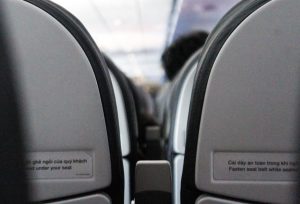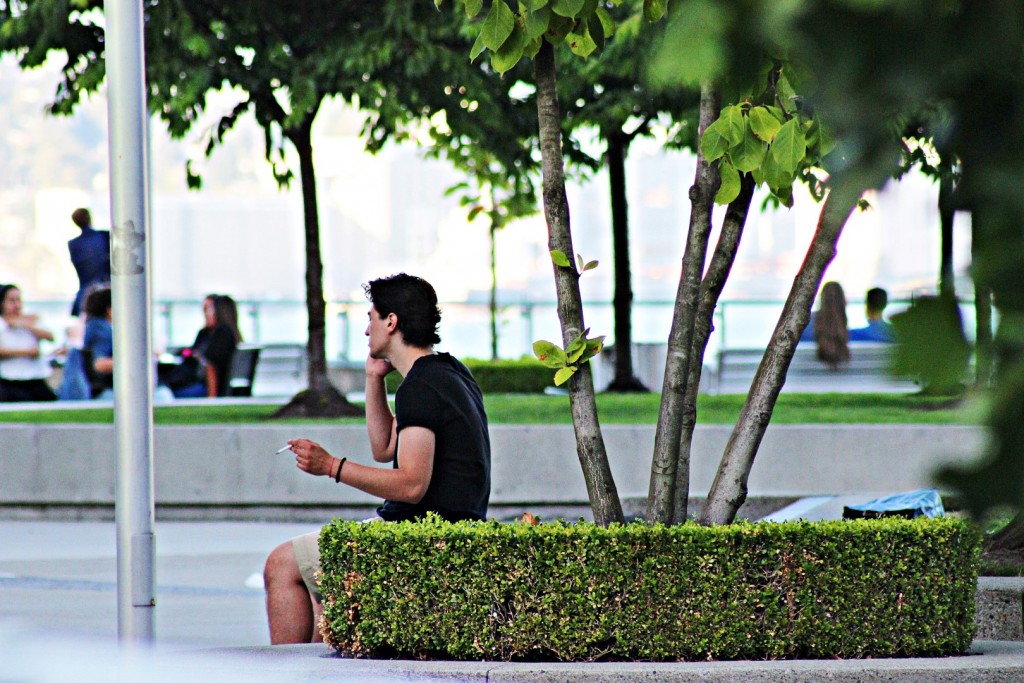
Are you trapped in here with us, or are we trapped in here with you?
By Bex Peterson, Editor-in-Chief
I fly far more often these days than I did when I was growing up—mostly for work—and I’ve noticed that people tend to act… inconsiderate, let’s say, when they’re stuck on an airplane.
Maybe I just observe it more because you can’t help but notice what people are doing around you when you’re all strapped in like so many sardines packed into a flying tin can. Every squabble, every passive-aggressive comment, every hygiene and personal space violation; there’s no escaping any of it. Tempers are short and entitlement is at an all-time high, and I get it. We spend a lot of money to fold ourselves into as tight a space as the airlines can manage without violating the Geneva Conventions. That kind of stress brings out something primal in us. I know if someone puts even one elbow over our shared armrest into my designated “area” my blood pressure drives up significantly (to say nothing of the absolute monsters who shove their chairs back into my knees as far as they can go).
I think it’s easy to get into an “every man Jack for himself” mentality because of this. You’re looking after your own interests, trying to keep as many of your personal boundaries sacred as possible, because flying is uncomfortable. It takes a long time, it’s expensive, and no one likes it. (I mean, I know people who say they enjoy flying, but those people are either liars or are able to travel business class, so they don’t count.)
This entitlement factor is irritating to deal with, but doubly so if you’re a person whose existence is seen as infringing on those precious few freedoms afforded to airline passengers. The documentary animation Flying While Fat highlights the uncomfortable and often dehumanizing treatment of fat people by airline staff and fellow passengers due to social stigmas and aggravated by the limited space allotted to each seat. For my own part, I have a severe allergy that could make being stuck 10,600 metres up with no escape a deadly experience for me. Watching flight attendants explain to the people around me that we’d “really appreciate it” if they don’t eat peanuts during the flight is always nerve-wracking; I’ve seen people grumble, roll their eyes, or actively refuse to listen. I don’t even blame people for reacting this way. It’s like with the elbow thing; them having to stow their trail mix until we land is just one more inconvenience, one more transgression, in a sea of inconveniences and transgressions.
However, I honestly think we should be approaching these situations from a different mindset. Instead of using the stress and discomfort of flying as an excuse to act our worst, shouldn’t we be trying to act our best?
Little acts of consideration can make a world of difference for the passengers around you. Things like avoiding dousing yourself with strong perfumes and avoiding bringing strong-smelling foods on board (especially ones containing common allergens) can save whole rows from added discomfort throughout the flight. If you’re on a night flight and the lights are off, consider turning your phone screen brightness down so you aren’t blinding the person next to you. When getting on and off the plane, allow people time and space to stow and retrieve their carry-on luggage from the bins without trying to shove past them. Give people as much room as you can, and if they do need more room because of their body type, don’t get angry with them for something they can’t control—get angry with the airline, since seat widths and especially seat pitch (the amount of legroom you have) have been steadily shrinking over the decades. Ask yourself if you really need to put your seat back, and if the long-legged individual already cramped in behind you might appreciate it if you didn’t.
In the heightened emotional environment of a cramped airplane, things can escalate quickly. Just remember, your fellow passengers aren’t your enemies—or at the very least, they don’t have to be.


